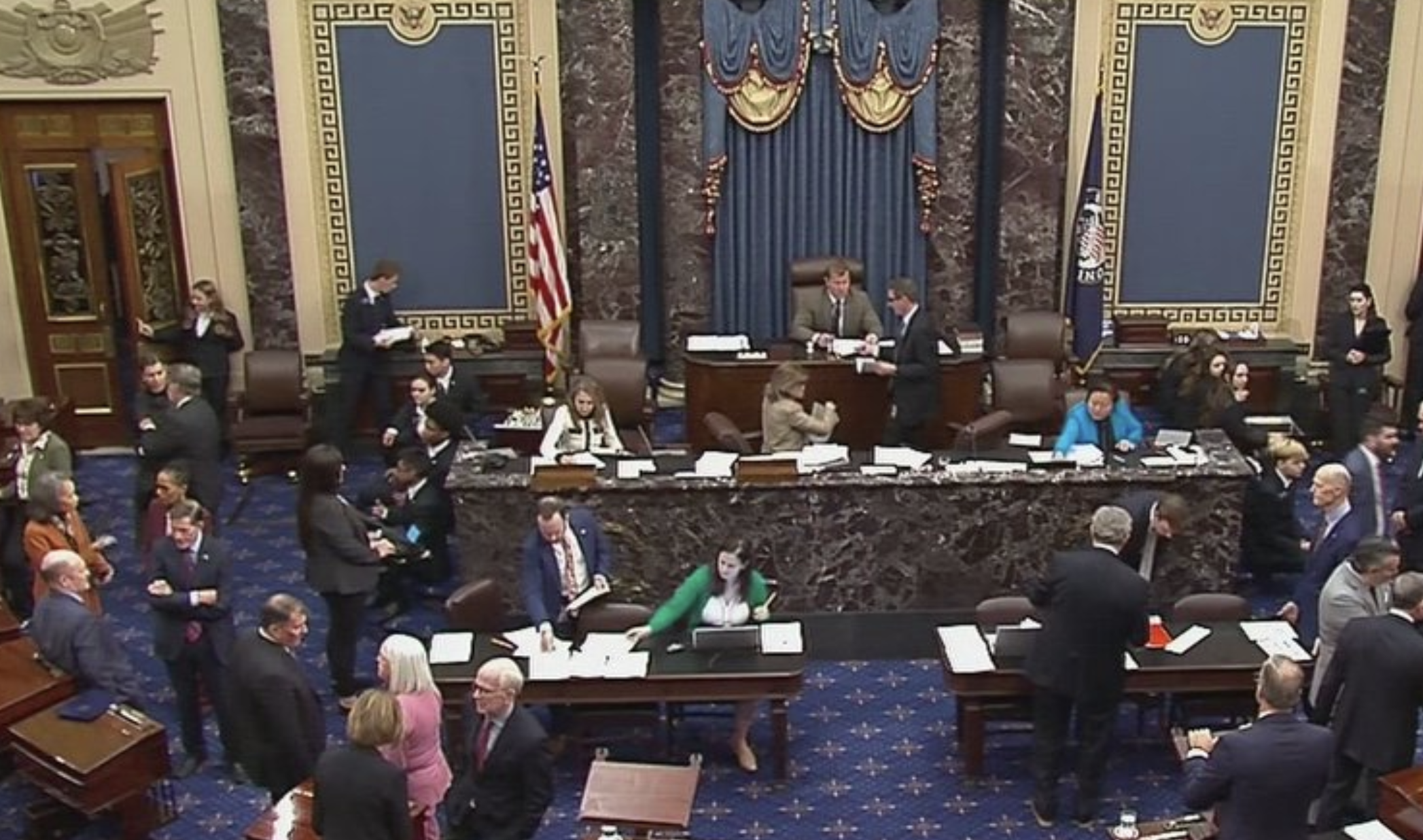
WASHINGTON (AP) — Senate Democrats rejected for the 10th time Thursday a stopgap spending bill that would reopen the government, insisting they won’t back away from demands that Congress take up health care benefits.
The vote failed Thursday morning on a 51-45 vote, well short of the 60 needed to advance with the Senate's filibuster rules.
The repetition of votes on the funding bill has become a daily drumbeat in Congress, underscoring how intractable the situation has become. It has been at times the only item on the agenda for the Senate floor, while House Republicans have left Washington altogether. The standoff has lasted over two weeks, leaving hundreds of thousands of federal workers furloughed, even more without a guaranteed payday and Congress essentially paralyzed.
“Every day that goes by, there are more and more Americans who are getting smaller and smaller paychecks,” said Senate Majority Leader John Thune, adding that there have been thousands of flight delays across the country as well.
Thune, a South Dakota Republican, again and again has tried to pressure Democrats to break from their strategy of voting against the stopgap funding bill. It hasn't worked. And while some bipartisan talks have been ongoing about potential compromises on health care, they haven't produced any meaningful progress toward reopening the government.
Thune has also offered to hold a later vote on extending subsidies for health plans offered under Affordable Care Act marketplaces, but said he would not “guarantee a result or an outcome.”
Democrats say they won't budge until they get a guarantee on extending the tax credits for the health plans. They warn that millions of Americans who buy their own health insurance — such as small business owners, farmers and contractors — will see large increases when premium prices go out in the coming weeks. Looking ahead to a Nov. 1 deadline in most states, they think voters will demand that Republicans enter into serious negotiations.
"The ACA crisis is looming over everyone’s head, and yet Republicans seem ready to let people’s premiums spike,” said Senate Democratic leader Chuck Schumer in a floor speech.
Meanwhile, Thune was also trying a different tack Thursday with a vote to proceed to appropriations bills — a move that could grease the Senate's gears into some action or just deepen the divide between the two parties.
A deadline for subsidies on health plans
Democrats have rallied around their priorities on health care as they hold out against voting for a Republican bill that would reopen the government. Yet they also warn that the time to strike a deal to prevent large increases for many health plans is drawing short.
When they controlled Congress during the pandemic, Democrats boosted subsidies for Affordable Care Act health plans. It pushed enrollment under President Barack Obama's signature health care law to new levels and drove the rate of uninsured people to a historic low. Nearly 24 million people currently get their health insurance from subsidized marketplaces, according to health care research nonprofit KFF.
Democrats — and some Republicans — are worried that many of those people will forgo insurance if the price rises dramatically. While the tax credits don't expire until next year, health insurers will soon send out notices of the price increases. In most states, they go out Nov. 1.
Sen. Patty Murray, the top Democrat on the Senate Appropriations Committee, said she has heard from “families who are absolutely panicking about their premiums that are doubling."
“They are small business owners who are having to think about abandoning the job they love to get employer-sponsored health care elsewhere or just forgoing coverage altogether,” she added.
Murray also said that if many people decide to leave their health plan, it could have an effect across medical insurance because the pool of people under health plans will shrink. That could result in higher prices across the board, she said.
Some Republicans have acknowledged that the expiration of the tax credits could be a problem and floated potential compromises to address it, but there is hardly a consensus among the GOP.
House Speaker Mike Johnson, R-La., this week called the COVID-era subsidies a "boondoggle,” adding that “when you subsidize the health care system and you pay insurance companies more, the prices increase.”
President Donald Trump has said he would “like to see a deal done for great health care,” but has not meaningfully weighed into the debate. And Thune has insisted that Democrats first vote to reopen the government before entering any negotiations on health care.






